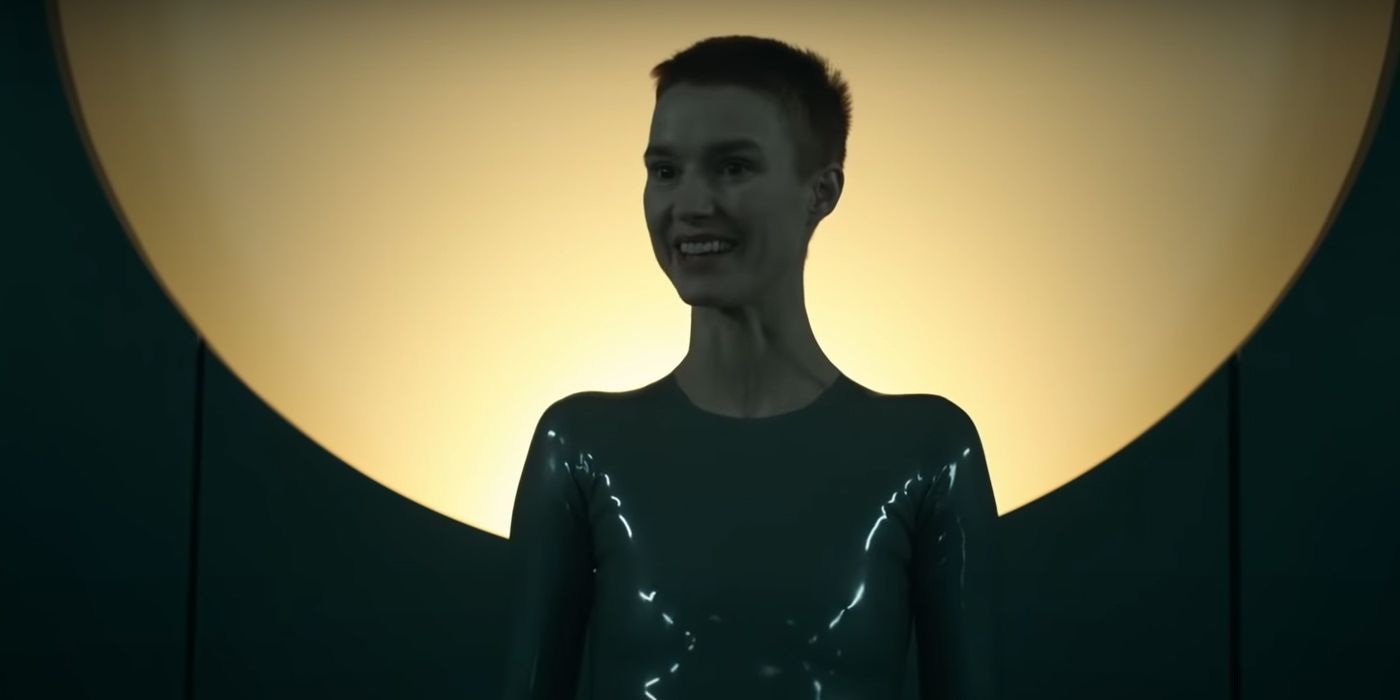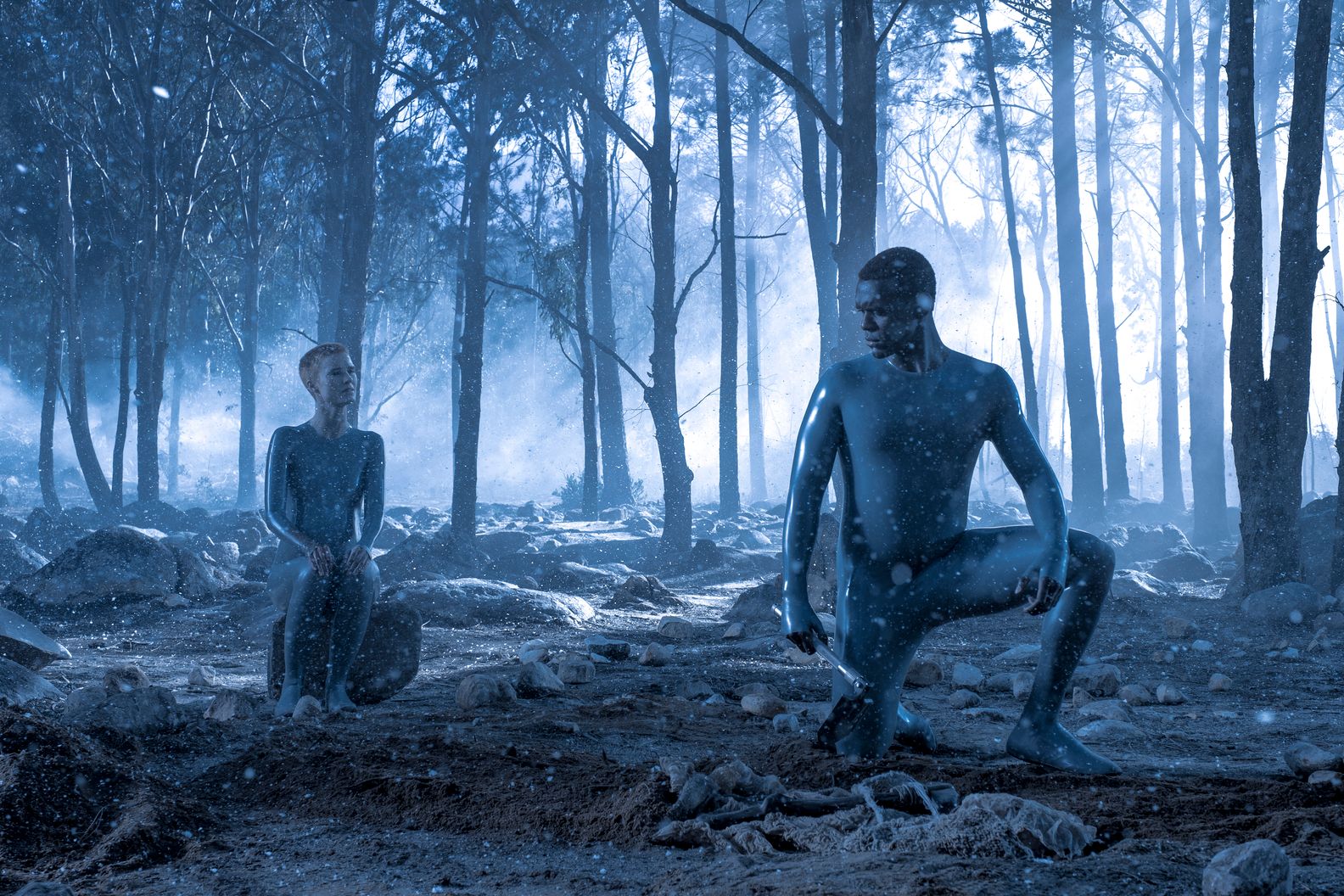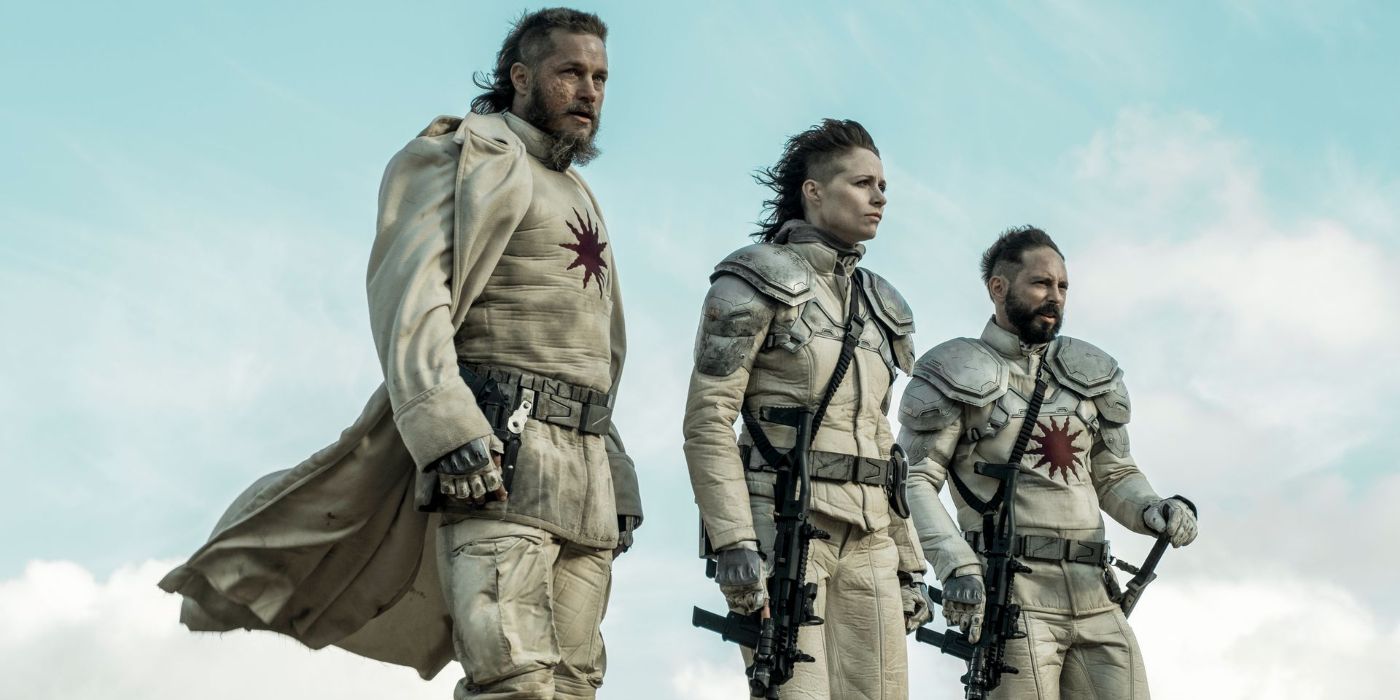Editor's note: The below article contains minor spoilers for Season 2 of Raised by Wolves.
The first season of Raised by Wolves was a left-field, science-fiction highlight of HBO Max’s first year. Launched during a time of uncertainty in the world and the entertainment industry, HBO Max had several early woes, most obviously the pandemic pushing back or halting completely a number of productions set for the service’s first day, but also general confusion with all the other HBO apps already out there. Still, all those people stuck at home were people open to new and diverse streaming content.
Besides having the mostly great reputation of HBO itself to fall back on, Max had a slew of solidly made tricks up its sleeve, with market-tested talent attached. Between Max and HBO proper, 2020 saw the release of genuinely strange goodness from Seth Rogen (An American Pickle), Kaley Cuoco (The Flight Attendant), and Armando Iannnucci (Avenue 5). This meant Wolves entered the world as a member of a ragtag family on an underdog streamer. Created by Prisoners screenwriter Aaron Guzikowski, the initial marketing push of the series did not much tout this fact, instead relying on the name of one of its producers to both set expectations and conjure interest, as one of its producers happened to be the director of Alien and Blade Runner.
With Ridley Scott now on the viewer’s mind, there’s a strange feeling of continuation, even from the first moments of the first season. We’re in a far-flung future whose complete history is unknown to us, but it doesn’t feel unknown. It feels somehow like picking up where we left off, albeit with two milk-blooded androids we’ve never met before: Mother and Father (played by Amanda Collin and Abubakar Salim respectively), though the first voice we hear belongs to their future “son” Campion (Winta McGrath). His opening voiceover and the galactic visuals set a majestic tone—one that implies the arrival of a story with epic scale. The moment we meet Mother and Father we can sense the whimsy in their personalities—Father tells Mother a joke that isn’t quite funny but is at least fun—but they are quickly inserted into a story full of sadness, terror, and difficult decisions.
Over the course of the first season, Mother and Father give birth to children and lose most of them before those children have a chance to grow up. They must contend with the harsh conditions of the mostly deserted planet on which they are meant to build an atheist colony. When they do amass their surrogate family—filled with individuals who do not all have a say in the matter—there are discussions on belief and oppression, loyalty and self-determination. There are characters who we learn are sporting stolen faces (literally), and flashbacks to the war that got the universe to the point of needing such a colony to exist. We learn that Mother is a necromancer—a type of war-android capable of spectacular destruction—and the series picks up steam as it leans into the spectacle she creates, the maternal android floating easily into the air like a death angel while the show’s electronic score swells around her.
Raised by Wolves doesn’t have the budget of WB’s theatrical adaptation of Dune, with its similarly muted color palette and barren landscapes filled with science fantasy action and bombastic music, but it holds its own in the modest ways that it can, mostly in its writing, with the debates about parenthood and honesty and war raising tensions within the family as humans and beasts pose threats without.
Father’s android dad jokes aside, the comic relief otherwise comes from the snide Marcus/Caleb (played with kinetic, alpha smarm by Vikings’ Travis Fimmel), the perpetually put out Hunter (played by British actor Ethan Hazzard, in his most visible American role), and the clinical, unselfconscious ways the androids describe human behavior and emotions. Which is to say, the comedy is in the dialogue and not in the situations. When a character gives birth to a monster at the end of the season, in a finale filled with carnage and death, one forgets there was ever anything to laugh about.
We arrive in Season 2 with this not being the case. It starts seriously enough, but soon our surviving cast is reintroduced and the new atheist collective setting is established. In short order, Mother is established as a very important person in this village—being an atheist-built necromancer will do that—and she eases into a sort of comfort zone. The show soon follows.
Maybe an edict came down from on high in the two years since the last season’s premiere. Maybe the creative team just saw how good the cast was at delivering comedic dialogue without destroying the grounded tone, but the show now does seem to intentionally create situational comedy. In the season opener, Mother often wears a beatific smile in the face of a community whose members aren’t quite fond of androids, no matter what their beliefs, and the wide-eyed, earnest look Collin imbues her with is infectious in its synthetic naiveté. The smile is like a mask, a parent wanting to lead by example in giving this new place a chance. The mask only falters mildly in the face of insults, like when her kids stumble upon a video game depicting necromancers as violent killing machines. “It’s not very realistic, is it?” she invites them to conclude, holding onto her perkiness. “Well, for you, it is,” cracks one of the kids, in a pointed callback to the first season’s events.
Later, still smiling, Mother goes with Father and the kids to choose “random” activities to help pitch in. “It appears we all have the same task!” Father happily announces after he and the kids receive their assignments. Mother rounds the corner wearing a smile that doesn’t reach her eyes. With a semi-convincing, crestfallen cheeriness (to not spoil the family bonding moment): “How exciting. It would appear I have received a different task.”
Some of this new humor is of the gallows variety. In Episode 2, we learn that last season’s serpentine monster-birth has survived and has brought with it a necromancer-like willingness to destroy. When a suicidal search-and-destroy mission is hatched to kill the beast, Father is chosen to lead it—there’s that lack of android fondness popping up again—and he is given a crew filled with human rule-breakers, employed as nonconsensual suicide bombers, known as the bait squad. When one member of the bait squad asks how exactly they’ll be conducting this hunt without any weapons, Father is forced to observe, “I don’t think you fully comprehend the situation.”
These feel like moments designed with their inherent humor in mind, not moments where humor is intended only to make the drama more easily digested. Add to this the continued importance of young Campion, there’s a family-friendly energy to the tone, like a twisted bid for Disney+-style entertainment, an attempt to not let a show about families and parenting go unseen by families and parents. It’s yet to be seen if the gambit will work in drawing eyeballs, but it has worked in adding a welcome layer to a world still filled with brutality and mystery, scary monsters, and philosophy. If a third season is announced, then it’s safe to assume it has worked indeed. If this second season is the last there gets to be, at least Raised by Wolves is going out with a smile on its face.



